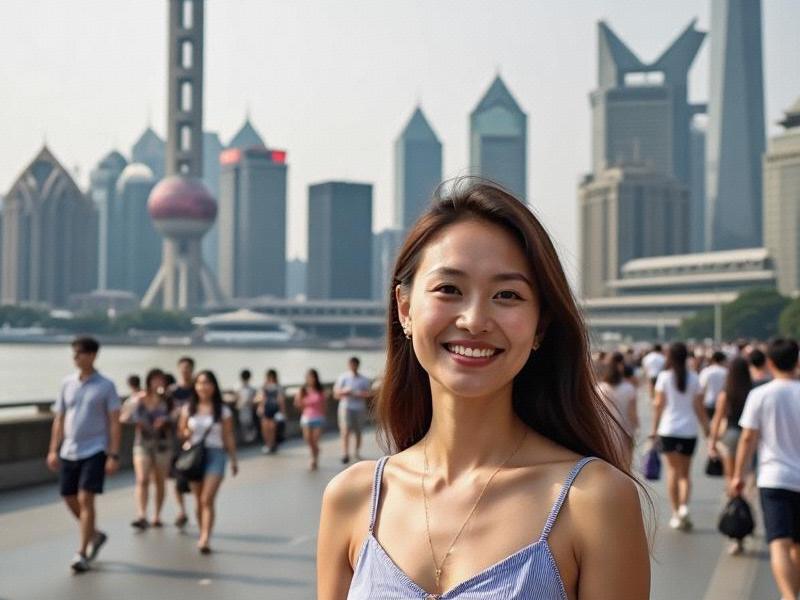Shanghai's New Femininity: How the City's Women Are Redefining Beauty Standards in Modern China
⏱ 2025-06-09 00:51 🔖 上海神女网
📢0℃

In the neon-lit streets of Shanghai's French Concession, a quiet revolution in Chinese femininity is unfolding. The "Shanghai Girl" archetype—once synonymous with qipao-clad elegance—has evolved into a multifaceted identity that's reshaping national beauty standards.
The 2025 Shanghai Women's Development Report reveals striking trends: 68% of local women aged 22-35 now prioritize "self-realization" over marriage in personal surveys, while spending on professional development courses has increased 140% since 2020. This shift reflects what sociologist Dr. Li Wenjing calls "the triple transformation"—economic independence, aesthetic confidence, and social influence.
上海龙凤论坛419 Shanghai's fashion districts tell this story visually. In Jing'an's newly opened THE BALANCE concept store, 30% of customers are female entrepreneurs purchasing power suits alongside traditional cheongsams. "Our clients want wardrobe flexibility," explains boutique manager Emma Zhao. "They might wear a Marni blazer to morning investor meetings and a改良旗袍(modernized qipao) for evening cultural events."
The beauty industry has adapted accordingly. Homegrown brands like Florasis now generate 40% of sales from Shanghai, where their "East-meets-West" makeup lines cater to women embracing both double eyelid tape and freckle-enhancing products. Meanwhile, the rise of douyin influencers like ShanghaiChic (2.3M followers) demonstrates how local women are redefining attractiveness—her most popular tutorial teaches "Boardroom Glamour" makeup for corporate settings.
上海私人外卖工作室联系方式
Economic empowerment drives this evolution. With 38% of Shanghai tech startups having female founders (compared to the national 22% average), the city's professional landscape nurtures what venture capitalist Vivian Wu terms "the steel magnolia phenomenon"—women balancing technical prowess with cultural grace. This duality manifests physically too; plastic surgery clinics report declining demand for dramatic Westernization procedures, with more clients opting for subtle "Shanghai-style" enhancements that preserve ethnic features.
上海私人品茶 Cultural preservation plays an equally important role. At Fudan University's Gender Studies Center, researchers document how young Shanghainese women are reviving 1930s hairstyling techniques while coding machine learning algorithms. "It's not contradiction, but rather dimensional richness," notes Professor Hannah Xu, whose team coined the term "Neo-HaiPai" (新海派) to DESRCIBEthis synthesis of heritage and modernity.
The municipal government has institutionalized this progress through initiatives like the annual Shanghai Modern Women Festival, which attracted 500,000 attendees last March. Events ranged from fintech seminars to qipao tailoring workshops, embodying what Mayor Gong Zheng calls "Shanghai's feminine soft power strategy."
As 28-year-old entrepreneur Zhang Yuxi—who runs a successful AI company while maintaining a popular traditional tea ceremony vlog—summarizes: "Being a Shanghai woman today means having the confidence to wear Louboutins or lotus shoes, depending on which serves your purpose better." In China's most cosmopolitan city, femininity is no longer a prescribed ideal, but an expansive palette of possibilities.
《梧桐深处:解码上海的城市文化基因》弄堂里的上海心跳:从石库门到城市更新的千年烟火密码Shanghai's Beauty Revolution: How Local Women Are Redefining Chinese AestheticsShanghai After Dark: The Metamorphosis of China's Premier Entertainment DestinationShanghai Women: The Epitome of Modern Chinese FemininityThe Shanghai Modern: How China's Cosmopolitan Women Are Rewriting the Rules石库门密码:解码上海市民精神进化史Exploring Shanghai's Entertainment Venues: A Guide to the City's Vibrant Nightlife and Cultural SceneSilicon Bund: How Shanghai Became the Neural Network of AsiaThe Velvet Revolution: How Shanghai's Nightlife Industry Went Upscale

